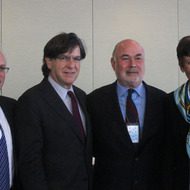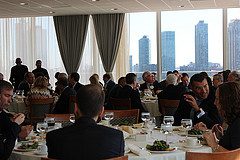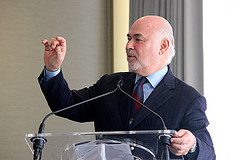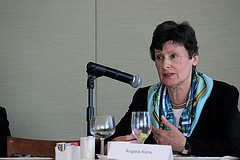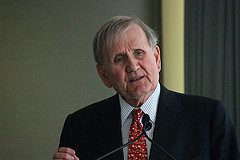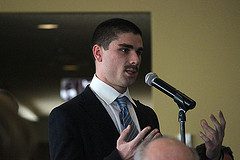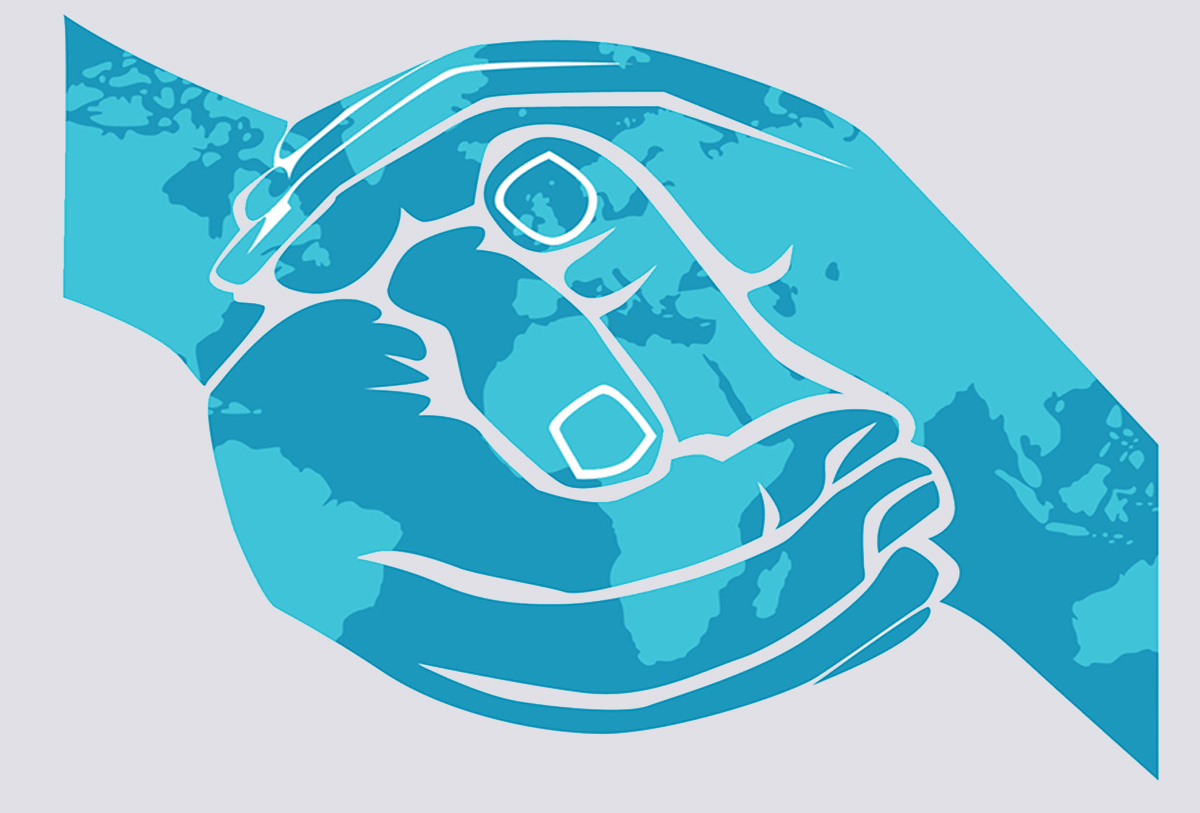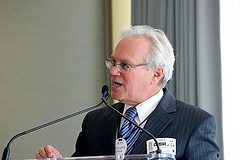 On October 28, 2013, the Global Security Institute hosted a luncheon event at the United Nations titled “Nuclear Weapons: Threats and Solutions,” featuring UN High Representative Angela Kane and former US Ambassador Thomas Graham, Jr. The event was co-hosted by the Metro New York Chapters of the Young Presidents Organization and the World Presidents Organization, in cooperation with the American Bar Association’s Section of International Law, and was held in the Delegates Dining Lounge at the United Nations Headquarters.
On October 28, 2013, the Global Security Institute hosted a luncheon event at the United Nations titled “Nuclear Weapons: Threats and Solutions,” featuring UN High Representative Angela Kane and former US Ambassador Thomas Graham, Jr. The event was co-hosted by the Metro New York Chapters of the Young Presidents Organization and the World Presidents Organization, in cooperation with the American Bar Association’s Section of International Law, and was held in the Delegates Dining Lounge at the United Nations Headquarters.
Over 100 business leaders, along with lawyers, diplomats, and students, gathered at this event to hear directly about the dangers posed by weapons of mass destruction (WMD). Ms. Kane— a leader at the United Nations in its investigations into the recent use of chemical weapons in Syria—and Ambassador Graham—a leading US diplomat in negotiations of nearly every major arms control treaty to which the United States is a party—provided the audience with some insider perspectives of the current state of WMD disarmament efforts in the world and where we must go next, emphasizing both security and rule of law issues.
After brief welcoming remarks by Richard Cohon of the WPO, GSI President Jonathan Granoff gave a brief description of the gravity of the nuclear threat. Thousands of weapons on high alert, dozens of accidents, misunderstandings, and other failures that almost sparked a nuclear war, and the sheer incomprehensible destructive power of today’s weapons all highlight the urgent need for nuclear disarmament, the issue that, in 1967, then-Senator Robert Kennedy, over a lunch he had with then-Congressional Intern Granoff, called “the moral and practical litmus test of our time.”
Ms. Kane appealed to the business leaders’ appreciation of “multilaterally agreed standards and norms” citing the “confidence and stability that comes from the existence of international law… real, tangible, and long-lasting benefits (of) conducting international relations with a framework of agreed norms and legal standards.” Yet while the business community has long been dependent on such international, law-based frameworks, nuclear weapons are “typically relegated to the domain of power rather than of law.” She highlighted the gaps in international law—such as the lack of a nuclear weapons convention, a fissile material treaty, and the failure of the Comprehensive Nuclear-Test-Ban Treaty to enter into force, for instance.
Despite these persistent gaps, however, she discussed “the new emphasis on humanitarian consequences” of nuclear weapons that has injected the international disarmament debate with a renewed fervor and momentum. In addition to respected international non-governmental organizations—such as the International Committee of the Red Cross and Mayors for Peace—a growing number of states have embraced the humanitarian approach; New Zealand, she noted, circulated a joint statement this General Assembly season supported by 124 states citing the humanitarian consequences of nuclear weapons. This theme, she stated, “has profoundly shaped the way in which nuclear weapons are discussed today—both inside and outside of governments.”
The shift in argumentation and in tone attest “to a remarkable development in our time: democracy is coming to disarmament, and this has enormous potential to threaten the future of nuclear weapons.”
Ambassador Graham called on the United States to “again fully establish itself as the leading advocate of the international rule of law and supporter of international treaties designed to promote this goal.” He continued: “If the United States effectively does this it will be faithful to its ideals and regain and deserve its historic role.” He discussed the way in which treaties come to being only with “supporters and advocates,” citing, for instance, the way in which the 1997 Chemical Weapons Convention finally finished the job of the Geneva Protocol of 1926, which banned the use of chemical weapons in war, only through the support of the business community, namely, the Chemical Manufacturers Association.
He further gave an impassioned plea to strengthen the Non-Proliferation Treaty by bringing the CTBT—“the principle quid for the quo of nonproliferation”—into force. Without it, he argued, “the long term viability of the NPT” is in jeopardy. Since the possibility of the United States ratifying the CTBT soon is very low, Ambassador Graham suggested that the United Nations Security Council could “adopt a resolution declaring that any nuclear weapon test anywhere at any time would be a threat to international peace and security, thereby establishing that such testing is an international crime.” He “urge(d) the consideration of such a measure,” noting that “nearly all of the current membership of the Council would support such a resolution.”
During the lively Q&A portion of the event, questions were raised over the threat of sub-state actors acquiring a dirty (radiological) weapon, the linkage between WMD disarmament and Middle East peace and security, the nuclear winter consequences of a “limited” nuclear exchange in South Asia, and other crucial issues. Other ideas for advancing the disarmament issue– including divestment– or “responsible investment”–, new social media networking abilities, and the powerful impact of an upcoming film, “The Man Who Saved the World,” were discussed.
In closing, Mr. Granoff underscored the need for business people, along with physicians, lawyers, parliamentarians, and other professionals, to get involved in the issue. It is imperative that we “create networks of people who want to build bridges,” he stated, “where there are presently walls.” It is GSI’s hope that this luncheon event helped advance the creation of such a network, which can serve as an important advocational constituency in favor of multilateralism and the rule of law.
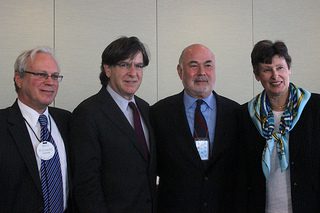 |
|
|
>> Read the full text of Angela Kane’s remarks
>> Read the full text of Thomas Graham’s introductory remarks
>> View the photo gallery for the event
Jonathan Granoff is the President of the Global Security Institute, a representative to United Nations of the World Summits of Nobel Peace Laureates, a former Adjunct Professor of International Law at Widener University School of Law, and Senior Advisor to the Committee on National Security American Bar Association International Law Section.

